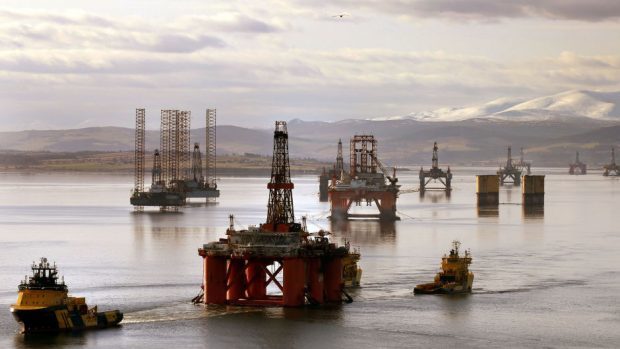In my day job I’m recruiting for oil and gas instrument and electrical engineers – but here is a job spec that is something really quite different.
To fill the role you’ll probably be in the first half of your career and are probably in the public sector or some type of property position.
The job requires you to deliver very little over the next ten years but around 2035 you should plan to be more high profile and start to make things happen.
Your real impact will be known sometime around 2050/60. If interested please read on.
Last week I chaired a conference for the Chamber of Commerce – Vanguard2018.
The event was about helping people fall back in love with Aberdeen. It was uplifting not least because the presenters included a range of volunteers who are actually making change happen. Indeed as a result we may see ‘parklets’ on our streets, new walking trails and much more.
If you weren’t aware of the ‘Vanguard’ movement have a search. If you have never heard of it I wouldn’t worry as I don’t feel its big deal if not everyone knows everything that is going on around us.
My opinion is that there is good stuff happening being coordinated by, perhaps, unlikely bed partners like the Chamber of Commerce, Opportunity North East and the councils.
However, I feel like there are still some gaps in longer-term thinking and saying this might make me unpopular in some places.
We might only be scratching the surface of our potential although I accept we don’t have all the levers we might want to use in our local power.
The context of this view is that as I have said in various places before, we are very lucky in Aberdeen and the north-east. The oil and gas industry has given huge amounts to the region and with some certainty we can understand its future trajectory in terms of the UK continental shelf.
While there will be ups and downs, a slow / long decline is likely and allows us time to be proactive for the future. There are many examples of cities that have not had this luck – think shipbuilding in Glasgow and Belfast, the loss of the mining industry across the UK or international examples such as Detroit.
History tells us cities and regions can suffer swift decline as factories or whole industries fail. These major events often lead to reactive efforts by public agencies and government taskforces, the latter of which could be a whole piece in itself.
This will generally lead to long periods of high unemployment, low economic output and associated social issues.
Nevertheless, there are many examples of where local or regional economic failings have been dealt with successfully over 20-40 year periods. Some examples of areas I have seen include Eastside (near the old bull ring) in Birmingham, the Greenwich Peninsula in London, the International Financial Centre in Glasgow or Holyrood in Edinburgh. Most of these regeneration areas have a few things in common including a long-term vision, patience, large projects and a person capable of driving forward these hard to deliver initiatives.
Of course the best publicised example at the moment is also from our noisy neighbour (joke) Dundee. These schemes develop and evolve over time and despite some continued economic / social challenges in Dundee the city is promoting itself with what appears, at least externally, a single positive voice.
As we look forward in Aberdeen over a 30-40 year timescale I see major regeneration/ development opportunities.
Firstly the City Centre Harbour area, I wonder what that will look like in 50 years. The harbour has been marvellously managed for the city and people of Aberdeen and the trust are now moving to the next stage of their own story at Nigg Bay. I suspect as a 900-year-old business that there is probably a 50 year plan and I for one would love to get a feel for what it is.
The second will be areas in locations like the Bridge of Don and Tullos. I wonder what some of what will become of the sprawling sheds and warehouses in these locations or what the future of these locations will be. There may be no major short-term issues but without doubt future change is essential over the longer-term.
As a city we don’t need to be specific or commit ourselves to heavy financial burdens at this stage, but we are best talking to residents early and with no urgency. As I said earlier not everyone will care, some people will not thank me for raising this, but I know at least a couple who will.
And so back to the job role. It’s certainly not a full time role yet but by 2050 you could be travelling the UK and various global conferences telling people how you helped catalyse the change of the cityscape of Aberdeen. Imagine telling the story of the famous Aberdeen.
As you make progress with this you’ll be supported by a population of thousands of silent but strong types and occasionally knocked by a few haters but don’t let that put you off.

